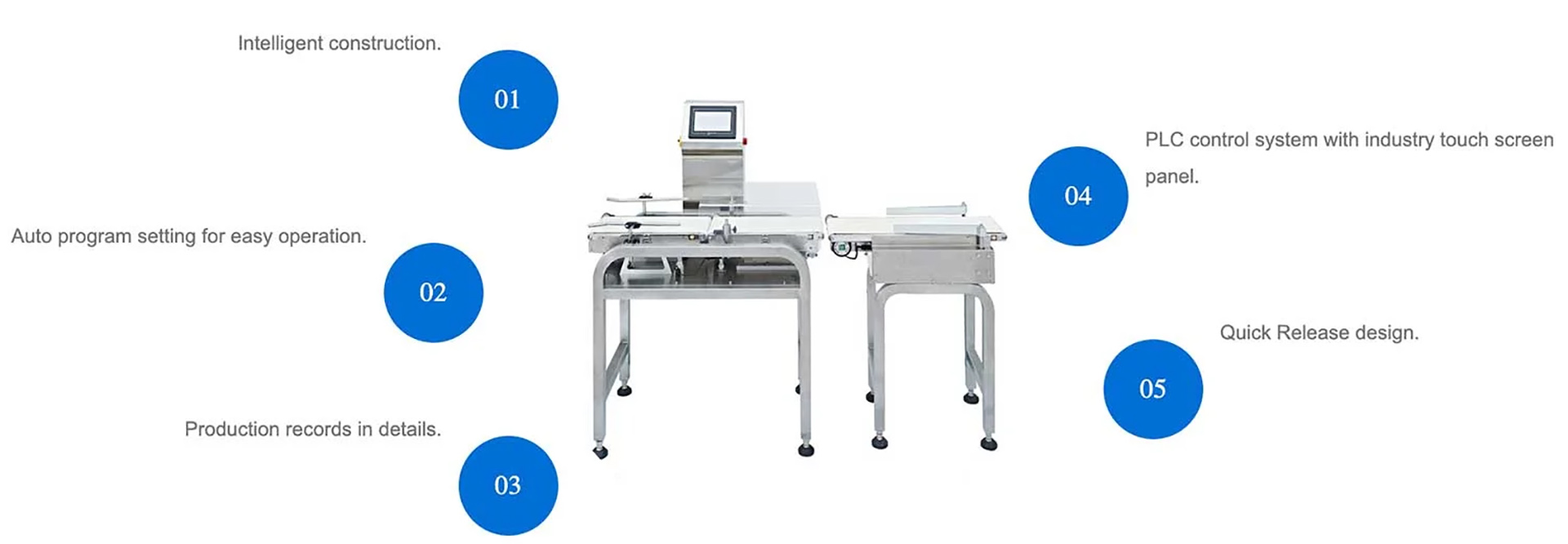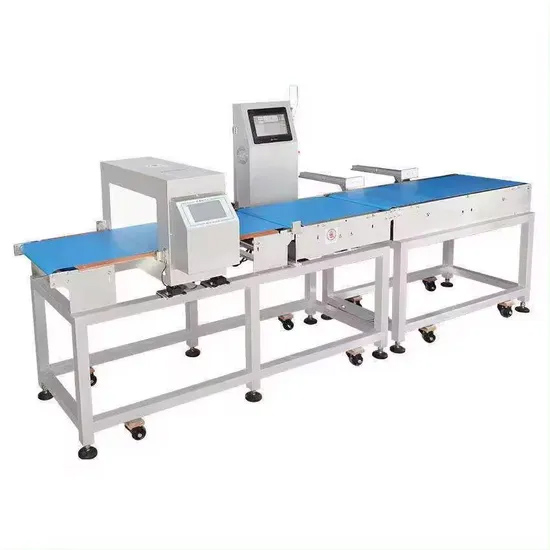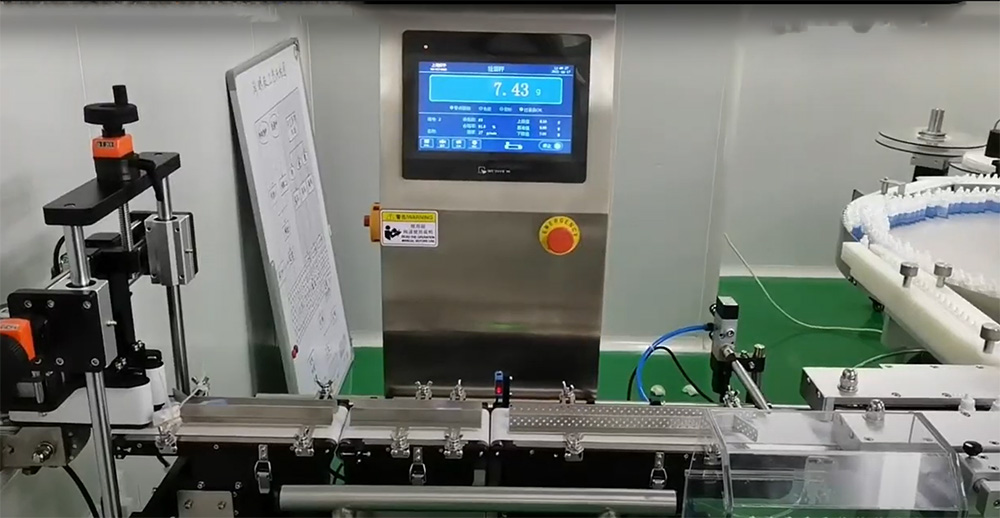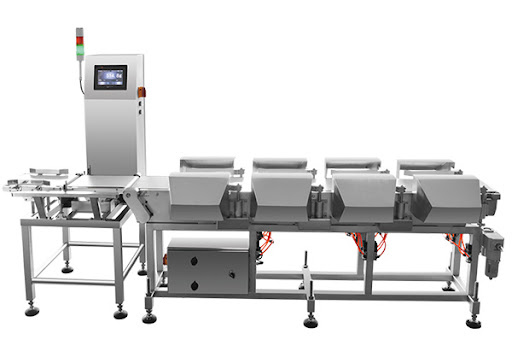
Weight Detector Manufacturer
Zhangjiagang Mic Machinery offers high-precision weight detectors (checkweighers) designed to automatically measure and verify the weight of filled products in real time. Whether you’re inspecting beverage bottles, sealed cans, cartons, or pouches, our inline weight detection systems help you ensure every product meets legal and quality standards—without slowing down your line.
These machines are ideal for industries such as beverages, dairy, sauces, cosmetics, chemicals, and pharmaceuticals.

At the heart of a weight detector's performance lies its precision and accuracy. Equipped with advanced sensors and sophisticated measurement systems, these machines are capable of detecting minuscule differences in weight, often down to fractions of a gram. This high level of sensitivity enables them to identify anomalies promptly, triggering alarms or automatic rejection mechanisms to rectify issues in real-time.

Moreover, weight detectors play a pivotal role in waste reduction and cost optimization. By detecting and rectifying deviations in weight promptly, these machines help minimize product giveaway and prevent costly recalls due to non-compliance with weight regulations. This not only safeguards profit margins but also enhances sustainability efforts by reducing unnecessary waste.
The versatility of weight detectors further enhances their performance. These machines can accommodate a wide range of products, from small, individually packaged items to larger bulk items, across diverse industries such as food and beverage, pharmaceuticals, and manufacturing. Whether it's ensuring the correct dosage of medication or verifying the weight of packaged goods, weight detectors offer unmatched flexibility in application.

Advanced features augment the performance of modern weight detectors, empowering them to deliver comprehensive solutions for quality control and process optimization. Automatic rejection systems swiftly remove non-compliant products from the production line, while data logging capabilities enable detailed record-keeping for traceability and quality assurance purposes. Additionally, connectivity options allow seamless integration with other equipment, facilitating synchronized operation and centralized control within the production environment.
In summary, the performance of a weight detector is multi-faceted, encompassing accuracy, speed, efficiency, versatility, and advanced features. As a critical component of quality control and compliance efforts, these machines ensure the consistent delivery of high-quality products while driving operational excellence and cost savings across industries.
What is a Weight Detector?
A weight detector, also known as a checkweigher, is a high-speed weighing system that accurately checks the weight of individual items as they move along a production line. If a container is found to be underfilled, overfilled, or defective, the machine automatically rejects it—ensuring compliance with labeling laws, reducing material loss, and protecting your brand’s quality.
Let’s Improve Your Product Accuracy
Looking to ensure every product is correctly filled and legally compliant?
A weight detector from Zhangjiagang Mic Machinery can improve your quality control, reduce product waste, and boost customer trust.
Contact us today for line integration advice, videos, or a custom machine quotation.


